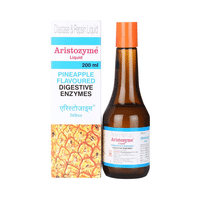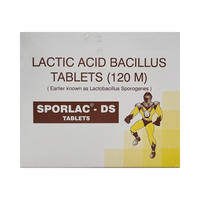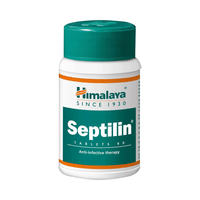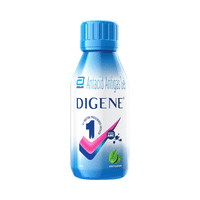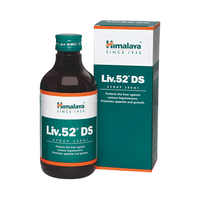Rs.51.60for 1 bottle(s) (15 ml Oral Suspension each)
food interaction for Azimax Oral Suspension
alcohol interaction for Azimax Oral Suspension
pregnancy interaction for Azimax Oral Suspension
lactation interaction for Azimax Oral Suspension
food
alcohol
pregnancy
lactation
Azimax 200 Dry Syrup may be taken with or without food, but it is better to take it at a fixed time.
None
None
CAUTION
It is unsafe to consume alcohol with Azimax 200 Dry Syrup.
UNSAFE
Azimax 200 Dry Syrup is generally considered safe to use during pregnancy. Animal studies have shown low or no adverse effects to the developing baby; however, there are limited human studies.
SAFE IF PRESCRIBED
Azimax 200 Dry Syrup is safe to use during breastfeeding. Human studies suggest that the drug does not pass into the breastmilk in a significant amount and is not harmful to the baby.
There may be a possibility of diarrhea or rash in the baby.
There may be a possibility of diarrhea or rash in the baby.
SAFE IF PRESCRIBED
SALT INFORMATION FOR Azimax 200mg/5ml Oral Suspension
Azithromycin(200mg/5ml)
Azimax oral suspension uses
{med_name} is used in the treatment of bacterial infections. It is used in bacterial infections of tonsils, sinus, ear, nose, throat, skin and soft tissues and lungs (pneumonia).
How azimax oral suspension works
Azimax 200 Dry Syrup is an antibiotic. It works by interfering with the synthesis of essential proteins required by bacteria to perform important functions. By doing so, it stops the infection-causing bacteria from growing further and prevents the infection from spreading.
Common side effects of azimax oral suspension
Vomiting, Nausea, Abdominal pain, Diarrhea, Headache, Palpitations, Chest pain, Indigestion, Flatulence, Dark colored stool, Vaginal moniliasis, Vaginal inflammation, Fatigue, Rash, Itching, Photosensitivity, Nephritis, Dizziness, Vertigo, Angioedema (swelling of deeper layers of skin)
SUBSTITUTES FOR Azimax Oral Suspension
215 Substitutes
215 Substitutes
Sorted By
 Rs. 57.12save 11% more per ml of Oral Suspension
Rs. 57.12save 11% more per ml of Oral Suspension Rs. 114.24same price
Rs. 114.24same price Rs. 114.24pay 11% more per ml of Oral Suspension
Rs. 114.24pay 11% more per ml of Oral Suspension Rs. 48save 58% more per ml of Oral Suspension
Rs. 48save 58% more per ml of Oral Suspension Rs. 58.27pay 1% more per ml of Oral Suspension
Rs. 58.27pay 1% more per ml of Oral Suspension
Expert advice FOR Azimax Oral Suspension
- Your child must complete the entire course of this medicine. Stopping too soon may cause the bacteria to multiply again, become resistant, or cause another infection.
- Give Azithromycin with food to avoid an upset stomach.
- Encourage your child to drink plenty of water in case diarrhea develops as a side effect.
- Azithromycin will not be effective for viral infections. However, the doctor may prescribe this medicine in case of a secondary bacterial infection. So make sure to speak to your child’s doctor first.
- Only give Azithromycin to your child for their current infection. Never save medicine for future illnesses.
- Stop the medicine and contact the doctor immediately if your child develops an itchy rash, facial swelling, and breathing difficulties soon after the intake.
Frequently asked questions FOR Azimax 200mg/5ml Oral Suspension
Azithromycin
Q. What if I give too much of Azimax 200 Dry Syrup by mistake?
Azimax 200 Dry Syrup is unlikely to cause any harm if an extra dose is given by mistake. However, if you think you have given too much of Azimax 200 Dry Syrup to your child, immediately speak to a doctor. Overdose may cause unwanted side effects and may even worsen your child’s condition.
Q. Are there any possible serious side effects of Azimax 200 Dry Syrup?
Some serious side effects of this medicine include persistent vomiting, kidney damage, allergy, diarrhea, and severe gastrointestinal infections. Always consult your child’s doctor for help in such a situation.
Q. Can other medicines be given at the same time as Azimax 200 Dry Syrup?
Azimax 200 Dry Syrup can sometimes interact with other medicines or substances. Tell your doctor about any other medicines your child is taking before starting Azimax 200 Dry Syrup. Also, check with your child’s doctor before giving any medicine to your child.













